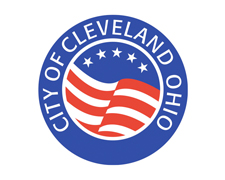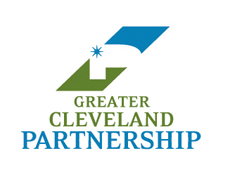The Cleveland Orchestra and Music Director Franz Welser-Möst extend acclaimed partnership to 2027
The Cleveland Orchestra has announced a new five-year extension of Franz Welser-Möst’s contract as Music Director, continuing a partnership that began in 2002 to 2027. The announcement was made at Severance Hall in Cleveland at the Gala Concert opening the Orchestra’s 2019-20 season.
“I am delighted to announce this extended contract, ensuring The Cleveland Orchestra’s acclaimed partnership with Franz Welser-Möst for an additional five years to 2027,” said Richard K. Smucker, Chair of the Orchestra’s Board of Trustees. “From Franz’s work here over the past quarter century, from everything we’ve witnessed and experienced across our Centennial Celebrations in 2018 to today, and through ongoing discussions and plans for the future, I know there is so much more to look forward to. This pairing, of Franz Welser-Möst and The Cleveland Orchestra, is already among the most successful artistic partnerships in the world today. Newspapers regularly proclaim Cleveland’s Orchestra under Franz’s baton as ‘America’s finest,’ as ‘America’s best,’ as ‘one of the top three in the world.’ This recognition inspires in us great pride and deep humility — as well as extraordinary awe and thanks to these exemplary, hard-working musicians. But, and let me say this loud and clear, together we know that Franz Welser-Möst and The Cleveland Orchestra can do even more. Franz’s vision and leadership reach across all areas of our institution, building and fostering our commitment to music education, dedicated to excellence, and determined to play more music for more people, to inspire young and old alike through the incredible power of music.”
Franz Welser-Möst first appeared with The Cleveland Orchestra as a guest conductor in February 1993. He was invited to return every season beginning in 1994, and was chosen and announced in 1999 as the Orchestra’s seventh Music Director, succeeding Christoph von Dohnányi, who served as music director from 1984 until 2002. Welser-Möst’s tenure began with the 2002-03 season.
“The relationship between Franz Welser-Möst and the musicians of The Cleveland Orchestra continues to flourish and evolve,” said André Gremillet, the Orchestra’s President & CEO. “This Orchestra has long been recognized as one of the best in the world. Whether we’re playing at home in Ohio, in Miami, New York, or across Europe or Asia, The Cleveland Orchestra is consistently acclaimed for its artistry, musicality, and unrivaled excellence. Under Franz’s leadership, it has grown even further, both artistically and in deepening its close and storied relationship with the larger Cleveland community. Musically, it has become a more agile ensemble, refining its chamber-music like approach to music-making in order to consistently offer performances of incredible finesse, unmatched subtlety, and deep meaning. Under Franz’s leadership and with his innovative programming, The Cleveland Orchestra’s audiences have grown bigger and, most notably, they have grown younger as we attract students and young people from across the region.”
“I am humbled by the faith that the musicians of the Orchestra and everyone in Cleveland has placed in my hands,” commented Franz Welser-Möst. “From the beginning, I have been inspired by Cleveland’s musicians and by the support and keen interest that the entire Cleveland community provides to The Cleveland Orchestra. I continue to be energized by these incredible artists and by all that we are able to do together. There is no better place in the world to work and to create music together than what The Cleveland Orchestra and community have offered to me.”
“I first conducted The Cleveland Orchestra in 1993 and I then spent a decade leading performances as a guest conductor here,” continued Welser-Möst. “So that even before I accepted the artistic leadership role here, I believed that Cleveland offered an opportunity to take a level of accomplished artistry and deeply-held traditions of excellence, and to grow even further, into something truly extraordinary together. I am humbled and excited by what we have already achieved together, and am looking forward to how much more we will do in years ahead. To remain connected with our audiences, to make a difference in our changing world, requires that we constantly evolve and thrive in new ways. The Cleveland Orchestra, and the entire community here, continually demonstrate a curiosity and willingness to learn that inspires me. I am eager to continue this wonderful relationship with this dynamic community.”
“There is a strong sense of understanding and mutual respect between Franz Welser-Möst and the musicians of The Cleveland Orchestra,” commented Richard Waugh, chair of the Musicians’ Committee of The Cleveland Orchestra. “There is a sense of excitement, willingness and ability to collaborate within this Orchestra that makes each rehearsal, each performance into a unique opportunity for sharing and teamwork. Franz Welser-Möst has enhanced and increased our understanding and potential as an ensemble, which makes for a wonderful collegial environment onstage for everyone. We are looking forward to our ongoing music-making with him.”
An overview of some specific plans and initiatives being implemented follows.
Education and Community: Building and Inspiring Young Audiences
Since its founding in 1918, The Cleveland Orchestra has devoted much thought and effort to serving young audiences, both through audience development initiatives to make concerts more accessible and in expanding and retooling its longstanding education programs for the future. In addition to the Orchestra’s extensive education offerings, the past decade has seen the implementation of a series of successful initiatives to break down barriers to concert attendance. Young people now make up 20% of classical concert attendees, with additional programs for young adults and professionals now being put in place.
“Since day one, Franz Welser-Möst has not just been interested and involved in our education programs, but actively pushing us forward to build on our past success and transform our education offerings for the 21st century,” said Joan Katz Napoli, senior director of Education and Community Engagement. “His vision has helped us introduce new priorities and reshape our ongoing initiatives. He understands and believes in the power of music and of hands-on music-making in particular to change the lives of young people all across Northeast Ohio. We are all eager to pursue and do more, to best serve Cleveland and surrounding communities — and to offer inspiration to those beyond our geographical region, too.”
“Music is a magnificent and meaningful tool in inspiring and teaching young minds about so many aspects of the world,” said Welser-Möst. “Music offers an emotional connection to our own lives and a sense of sharing. For young and old alike, music and involvement in the arts makes a better person. Hands-on music-making, whether through an instrument or singing, is a particularly powerful catalyst for learning, teamwork, and collaborative understanding.”
The Cleveland Orchestra has been a strong force in greater Cleveland, offering an annual calendar of education programs and initiatives since its founding. The Orchestra has introduced over 4 million children to classical music across the past century. Each year, ongoing and expanding education programs touch the lives of up to 100,000 young people and adults.
Ongoing and recently introduced initiatives include:
• Launch of “Crescendo” instrument training pilot programs — begun in 2018, Crescendo is working to create an instrumental music pipeline for students in underserved neighborhoods in partnership with the Cleveland Metropolitan School District, with Cleveland Orchestra musicians involved in teaching strings (Mound School) and brass (Wade Park School) along with coaching through the Cleveland School of the Arts. As part of Franz Welser-Möst’s passionate belief in the benefit of hands-on music-making, Play It Forward Cleveland! united five Cleveland nonprofit and public organizations in a community drive to collect gently-used musical instruments. Following repairs, more than 350 instruments are being be gifted to children participating in music programs in the Glenville Neighborhood of Cleveland’s 9th Ward.
• New “Access!” funding expands free tickets to Cleveland Orchestra daytime Education Concerts to all schools throughout Cleveland and surrounding communities — because all children deserve world-class music.
• Expanded “Mindful Music Moments” — this program for schools offers a morning meditation to Cleveland Orchestra recordings of classical music, helping to center students for learning in a stressful and chaotic world. Launched in 2018, the program has expanded to more than 50 schools across Northeast Ohio.
• “Musical Rainbows” transformed into “Music Explorers” concerts — inviting pre-school children to actively explore the instruments of the orchestra, one by one, with Cleveland Orchestra musicians and guests. New online videos, featuring engaging characters Major Scale and Ranger Rhythm, are a perfect (and fun!) resource for today’s kids and families.
• “Learning Through Music” curriculum plans — based on The Cleveland Orchestra’s award-winning arts-integrated program/curriculum, which has been successfully utilized in schools for over two decades, these plans are now a shared resource online for all, free of charge.
In addition, over the course of the past decade, The Cleveland Orchestra has significantly increased the number of attendees at its classical concerts through a series of initiatives made possible by the Orchestra’s Center for Future Audiences, created in 2010 with a generous endowment gift from the Maltz Family Foundation. Additional funding has been contributed by Mr. and Mrs. Alexander M. Cutler and others. Initiatives include the Under18s Free program, offering subsidized tickets for parents to bring their children to concerts at Severance Hall and the Orchestra’s summer home at Blossom Music Center ̶— as well as Student Ambassadors, Student Advantage, and Frequent Fan Cards for students, and The Circle young professional membership group.
Nurturing Diverse Talent – the Orchestra is also working toward finalizing plans to address an existing challenge within the classical music industry, with a focus on accomplished young musicians on the verge of a professional orchestral music career. This new Cleveland Orchestra Fellowship program is currently in planning stages. Its goals are aimed at increasing diversity in the field of classical music, helping to support exceptional Black and Latinx musicians who aspire to careers in the top professional orchestras. More details will be announced in the coming months about the launch of this program during the 2020-21 season.
“As society continues to evolve and the arts more and more become a worldwide avenue for sharing and communication, there is a growing need for more diversity within the field of classical music and within orchestras particularly,” said Franz Welser-Möst. “An ensemble like The Cleveland Orchestra thrives on the varied experiences and perspectives of our musicians to bring the nuance and depth for which we are known. As an institution, we are committed to pursuing new avenues to enhance this by building a fellowship program focused on gifted Black and Latinx musicians. We are in the development stages of this program, with ongoing conversations with the musicians of The Cleveland Orchestra, and with collaborative partner organizations. Our intent is to share the Orchestra’s unique chamber music approach with selected Fellows in a small, custom-made program. We believe that we can make a meaningful difference and have a clear impact, by linking participants in this specific approach to making music, connecting them to our network of international artists, and offering a uniquely supportive and nurturing environment.”
More details about these initiatives, along with The Cleveland Orchestra’s many other education and community programs, are available upon request; additional details can also be found at clevelandorchestra.com.
Musical Focus, Exploration, and Festivals
“Franz Welser-Möst’s reputation for insightful leadership and programming draws musicians from around the world, both as guests and to audition for the Orchestra itself,” said Mark Williams, Chief Artistic Officer of The Cleveland Orchestra. “Part of his success in making Cleveland a destination for opera is his ability to discover and nurture the best singers worldwide. He has recognized the potential of many singers from the beginning of their careers and helped mentor them into the well-known artists they are today. But without seeking credit or publicity — simply by inviting them to work in Cleveland in unique opera presentations and other repertoire. He has done much the same over the past two decades working with a series of emerging composers, encouraging and supporting their work through performances and commissions, building on The Cleveland Orchestra’s long history of commissioning and presenting new works.”
Since the beginning of his tenure as Music Director in Cleveland, Welser-Möst has focused across a wide variety of music. His curation of programming has featured the introduction and support of emerging composers through the Daniel R. Lewis Young Composer Fellows program, the rediscovery of forgotten music or exploring masterpieces in new ways, and unique juxtaposition of old and new composers. He has also led an acclaimed series of annual opera presentations, both in concert and innovative staged presentations. Unique festivals have further explored these musical ideas, such as The Prometheus Project during the Orchestra’s 2017-18 season, which brought new perspectives to Beethoven’s symphonic writing and included education components for students at the Cleveland School of the Arts, along with concerts and symposia presented on three continents in May and June 2018.
Building on The Cleveland Orchestra’s long but episodic history of performing operatic music, Welser-Möst has integrated opera presentations into each Severance Hall season, and featuring a mix of in-concert and staged productions. The presentations have featured celebrated singers as well as newly-discovered talent, and also featured inventive stagings juxtaposing technological innovation with musical excellence.
In recent seasons, the operas have been presented with a surrounding festival of related concerts, events, and expanded programming, seeking to explore the context of themes in each opera through collaborations with additional artists and other Cleveland-area arts institutions.
The opera/festival plans for the next five seasons are:
2019-20: Lulu by Alban Berg, May 2020, in concert presentation (with “Censored: Art & Power” festival exploring the relationship between prejudice, government censorship, and the arts); featuring soprano Barbara Hannigan in the title role;
2020-21: Otello by Giuseppe Verdi, 2021, in concert presentation (with festival concerts and events exploring ideas of being an outsider — of inclusion and exclusion, group and individual); featuring baritone Simon Keenlyside making his role debut as Iago;
2021-22: Parsifal by Richard Wagner, 2022, staged by director Frederic Wake-Walker; featuring tenor Piotr Beczala (as Parsifal) and mezzo-soprano Okka von der Damerau (as Kundry) making their role debuts, with bass Peter Rose as Gurnemanz and baritone Hanno Müller-Brachmann as Amfortas;
2022-23: La Fanciulla del West by Giacomo Puccini, 2023, in concert presentation; these performances will feature two singers in role debuts: soprano Tamara Wilson as Minnie, and bass-baritone Eric Owens as Jack Rance;
2023-24: The Magic Flute by W.A. Mozart, 2024, staged by director, actor and puppeteer Nikolaus Habjan (U.S. Debut); with tenor Julian Prégardien as Tamino, baritone Ludwig Mittelhammer as Papageno, and bass Peter Kellner as Sarastro.
During Franz Welser-Möst’s tenure, Cleveland has become known in the opera world as an important destination for major artists to debut new roles. In addition to those listed above for 2021, 2022, and 2023, recent Cleveland Orchestra role debuts have included baritone Simon Keenlyside singing his first Rodrigo in Verdi’s Don Carlo, tenor Piotr Beczala with his first Prince in Dvořák’s Rusalka, and soprano Tamara Wilson singing her role debut in the title role of Strauss’s Ariadne auf Naxos.
“I believe that part of each season should always be about discovery, for the Orchestra’s musicians, for guest artists, for the audiences” said Franz Welser-Möst. “Our role as musicians is not simply to play music that we all know and love, but also to explore, whether they are new works or ‘undiscovered gems’ from the past that are new for the audience and the Orchestra, but deserve to be heard. For me, too, it is important to study and learn new works, and to encourage a curiosity about the many shapes and styles of music — for the audience, within the Orchestra, and for myself. This kind of constant learning keeps us alive and helps us to understand and share music as a language in new ways.”
The current season features a series of concerts juxtaposing symphonies by Schubert and Prokofiev, following on past pairings of Beethoven with Shostakovich, Jörg Widmann with Brahms, and John Adams with Bruckner. The Schubert-Prokofiev pairing is being featured in concerts in Cleveland, Miami, Paris, and Vienna.
In addition, The Cleveland Orchestra and Welser-Möst continue to explore works by composers rarely heard in Cleveland, or which are new to him. These include a number of 20th-century composers, such as Czech Erwin Schulhoff, Austrian Ernest Krenek, and Americans Samuel Barber and William Grant Still. Plans for future seasons are to feature works by the 19th-century Frenchman Albéric Magnard and by several contemporary composers, including Russian Galina Ustvolskaya, who died in 2006, and the Korean Unsuk Chin.
Additional information about future opera presentations and festival focus events, as well as upcoming and ongoing Cleveland Orchestra commissioning projects, and musical discovery offerings will be detailed in season announcements each year.
New Recording Releases planned in 2020 and beyond
“The Cleveland Orchestra has a long and storied catalog of recordings, providing testament to the ensemble’s ongoing and changing artistry,” said André Gremillet. “Beginning in 2020, we are launching a new series of releases showcasing the remarkable abilities and achievements of this ensemble under Franz Welser-Möst’s direction. The repertoire is being chosen to highlight the breadth and depth of Welser-Möst’s leadership and the partnership with the Orchestra, not just with classic masterpieces, but with particular focus on 20th and 21st century works.”
Building on its recent and historic catalog of recordings, The Cleveland Orchestra is preparing to inaugurate a series of releases, focusing on recent live-concert performances conducted by Franz Welser-Möst. The first release is planned for spring of 2020, as a compact disc album, for online digital download purchase, and through streaming services.
The initial release will feature six works:
• BEETHOVEN – String Quartet No. 15 (version for string orchestra)
• VARÈSE – Amériques
• STAUD – Stromab (Cleveland Orchestra co-commission; world premiere recording)
• R. STRAUSS – Aus Italien
• DEUTSCH – Okeanos with Paul Jacobs (organ)
• PROKOFIEV – Symphony No. 3
This and planned, ongoing future releases are designed to share the unique achievements of the Welser-Möst/Cleveland Orchestra partnership. They will build on recent Bruckner and Brahms video/DVD releases, adding wider and more unusual repertoire.
Complete details of the initial release in 2020 will be announced in the coming months.
Playing More Music for More People
The Cleveland Orchestra’s concert offerings continue to evolve and expand, both at home in Ohio and around the world.
“Cleveland is one of the few American orchestras invited to perform internationally every year,” said Mark Williams, Chief Artistic Officer. “Yet even with regular tours beyond Cleveland, a majority of our focus and performances are directed at our hometown. With summer and winter seasons, we offer a wide variety of programming. The intimacy and clarity of Severance Hall’s acoustics has been a driving force in creating this Orchestra’s unique and recognizably special sound. Yet we also feel that we carry that sound, that aural understanding with us everywhere we perform. It’s like taking Cleveland with us, and sharing some of the city’s distinctive qualities worldwide.”
“If you look back at the past couple of seasons,” commented Franz Welser-Möst, “it was The Cleveland Orchestra that performed the very first staged opera at Vienna’s Musikverein, showcasing a technologically cutting-edge production of Janáček’s The Cunning Little Vixen. Add to that our performances of The Prometheus Project, not just at home in Cleveland, but around the world in Vienna and Tokyo. The Orchestra and I are so pleased to be able to work on these things together, and then to share the music that we offer in Cleveland to other great cities and audiences of the world. There is meaning in music. It is not just something pretty and beautiful, it is a connection to our emotions and to our minds. Cleveland audiences have a great curiosity to listen and learn, to be inspired.”
“Franz and the Orchestra performed in China for the first time together this past spring, and returned to Japan in 2018 after more than 7 years.” added André Gremillet. “The European capitals of music will always remain extremely important for us, but after a long absence from Asia, we will now be returning there more regularly in the coming decade. We also have some exciting plans in the works for the Orchestra to play in new locations. We are deeply committed to playing more music for more people, both at home and on tour. Now more than ever before, Franz Welser-Möst and The Cleveland Orchestra are in high demand from audiences around the world.”
For images of Franz Welser-Möst please see this link: https://www.dropbox.com/sh/vjf9650fqh86qbo/AAB7k_vPdoLFX7KmOybF2dmqa?dl=0
Photo credit for all is © Roger Mastroianni, Courtesy of The Cleveland Orchestra.
RECENT PRESS ACCLAIM for The Cleveland Orchestra, selected excerpts:
What might seem straightforward was actually extraordinary — even, perhaps, unprecedented. There are a lot of great, ambitious orchestras in the world; I don’t know another that would have gone for what the Clevelanders did this week. . . . “Tristan” is a nearly four-hour score of immense complexity that is not, to say the least, what a symphony orchestra pulls out every season. (The Cleveland Orchestra hadn’t done it whole since 1933.) Yet in the midst of a run of concert performances of the opera, this ensemble plopped a single go at “Turangalîla,” all 80 steroidally scored minutes of it. Inspired by the Tristan legend, Messiaen’s riotous celebration of love is a loopy, visionary kind-of concerto for piano and the whistling ondes martenot: Think of a Chagall painting in sound. It usually requires nearly a week of dedicated preparation and a series of performances to justify the effort. . . . Messiaen was not solely riffing on Wagner’s “Tristan” when he wrote “Turangalîla” in the late 1940s. But the opera’s harmonic experimentation and daring intensity, its bold depiction of sexual obsession amid societal pressure, its fevered nighttime love scene, were clear influences on the later symphony. And Mr. Welser-Möst brought the same conception to both: lightness, transparency, poise, an emphasis on textural variety, the quality of aeration that is his trademark . . . But even before a season-ending Beethoven cycle that will tour to Vienna and Tokyo, Cleveland proved its mettle, yet again, by going above and beyond. Oh, and did I mention that Saturday brings a dive into sacred love, with 16th-century brass pieces, contemporary choral works, a Bach cantata and solo-organ fantasias? That’s the evening before the final “Tristan” matinee. Just another weekend in the life of America’s most understatedly amazing orchestra.
—The New York Times, April 27, 2018
The 21st century has seen — and heard — a revival of The Cleveland Orchestra’s glory. Both financially and artistically, the outfit is stronger than ever. Much of its success can be credited to the latest music director, Franz Welser-Möst. The Austrian-born conductor arrived in 2002 and began reshaping the band. One Cleveland board member confides that he was chosen over more famous conductors because he pledged to upend the status quo: “Franz was the only one who said, ‘There’s something different I’d like to do’.” Absolute precision has been the orchestra’s hallmark since Szell. Mr Welser-Möst prefers a lighter touch. “You can’t have total control,” he says. “Szell would tell the english horn player which optician to go to. That doesn’t work anymore.” Now the music breathes more.
—The Economist, February 2019
“With Franz Welser-Möst’s conducting choices, The Cleveland Orchestra . . . focused on making the music flow. . . . Richard Strauss’s Ein Heldenleben was full of musical details, providing the orchestra with an opportunity to showcase its strengths to the fullest extent. Welser-Möst’s logical and calm style emphasized structure, both in depth and breadth, reflecting what the work authentically requires. . . . The orchestra’s high artistic standard showed that Welser-Möst is an indispensable force in the ensemble’s history.”
—Music Weekly (Beijing), April 17, 2019
“Franz Welser-Möst conducted Mahler’s Sixth Symphony on the second evening of the performances with his Cleveland Orchestra in the Grosser Saal of the Elbphilharmonie. . . . Mahler, known for demanding requirements, would probably have approved of what Welser-Möst did with this symphony. How he merged together dramatic, hard-hitting, and frenetically loving characteristics. How brilliantly and with caring focus on each detail this American orchestra proved itself in excellent form, especially throughout all the solo wind instruments. . . . Where to start the praise, where to end with the amazement?
Magnificent, for the urgency with which Welser-Möst kept the manically agitated pulse alive. . . This version was delightfully unsentimental, quite lean and sinewy, with the wallowing fat of pathos exercised away, offering an existential rollercoaster ride. Every single measure called for everyone to give their all, a collective tour de force, an emotional burden that exhausted and animated at the same time. At the end, there was the hard-earned standing ovation.”
—Hamburger Abendblatt, October 2017
“Music is the primary focus — with the excellence of The Cleveland Orchestra under Franz Welser-Möst taking any listener’s breath away. Even while briefly closing your eyes, you will still hear everything (and so much more) of what is happening visually in the opera. This was fully-rounded sound with nuance — an event! Flawless too were performances by Martina Janková as a touching Little Vixen, by Jennifer Johnson Cano as the fox, and Alan Held as the Forester, or by Raymond Aceto as Harasta. . . . The cheers at the end were for every aspect of this performance.’” —Kurier, October 2017, Vienna
“Ohio’s prize orchestra is still gleaming, giving performances as precision-tooled as the cars that once rolled out from Michigan’s factories. . . . The orchestra’s ensemble sense is perfect. . . . Franz Welser-Möst has managed something radical with The Cleveland Orchestra — making them play as one seamless unit. . . . Brahms’s Tragic Overture and Symphony No. 2 flickered with a very delicate beauty that makes the Clevelanders sound like no other orchestra.”
—London Times, September 2014
“Right now The Cleveland Orchestra may be, as some have argued, the finest in America.
. . . At the end of the opera, the ovations for Ms. Hangler, Mr. Schager and especially Mr. Welser-Möst and this remarkable orchestra were ecstatic.”
—New York Times, July 16, 2015
ABOUT: Franz Welser-Möst
Franz Welser-Möst is among today’s most distinguished conductors. The 2019-20 season marks his eighteenth year as music director of The Cleveland Orchestra, with the future of this acclaimed partnership, begun in 2002, now extending to 2027. Under his direction, The Cleveland Orchestra has been repeatedly praised for its extraordinary music-making, as well as its inventive programming, its ongoing support for new musical works, and for its innovative approach to semi-staged and staged opera presentations. An imaginative approach to juxtaposing newer and older works in concert and as festivals has opened new dialogue and fresh insights for musicians and audiences alike. The Orchestra has also been hugely successful in building up a new and, notably, a young audience through groundbreaking programs involving students and families. It has long been in the forefront in its offerings of education initiatives and community programs, engaging directly with the future generations and music-loving citizens of Cleveland and surrounding areas.
As a guest conductor, Mr. Welser-Möst enjoys a particularly close and productive relationship with the Vienna Philharmonic. He has twice appeared on the podium for their celebrated New Year’s Concert, and regularly conducts the orchestra in subscription concerts at the Vienna Musikverein, as well as on tours in Japan, China, Australia, and the United States. Mr. Welser-Möst and the Vienna Philharmonic have performed together at historical memorial concerts in Sarajevo and Versailles. Highlights of his guest conducting appearances in the 2019-20 season include performances of Strauss’s Die Aegyptische Helena at Teatro alla Scala, and concerts with the New York Philharmonic, Leipzig Gewandhaus Orchestra, Bavarian Radio Symphony, Amsterdam’s Royal Concertgebouw Orchestra, and the Royal Stockholm Philharmonic. Mr. Franz Welser-Möst is also a regular guest at the Salzburg Festival, where his work leading a series of opera performances has been widely acclaimed. These have included Rusalka, Der Rosenkavalier, Fidelio, Die Liebe der Danae, Aribert Reimann’s Lear, and Strauss’s Salome. The success of both Salome and Rosenkavalier caused the Festival to schedule encore performances in subsequent years and DVDs of both productions have been released internationally.
Franz Welser-Möst’s recordings and videos have won major international awards and honors, including a Gramophone Award, Diapason d’Or, Japanese Record Academy Award, and two Grammy nominations. With The Cleveland Orchestra, his recordings include two series of DVDs on the Clasart Classic label, featuring live performances of five of Bruckner’s symphonies and a multi-DVD set of major works by Brahms (with Yefim Bronfman and Julia Fischer as soloists), and Brahms’s German Requiem. A number of his Salzburg opera productions, including Der Rosenkavalier, have been released internationally on DVD by Unitel.
In June 2019, Mr. Welser-Möst was awarded the Gold Medal in the Arts by the Kennedy Center International Committee on the Arts in recognition of his long-lasting impact on the international arts community. Other honors include the Vienna Philharmonic’s “Ring of Honor” for his longstanding personal and artistic relationship with the ensemble, the Pro Arte Europapreis for his advocacy and achievements as a musical ambassador, recognition from the Western Law Center for Disability Rights, honorary membership in the Vienna Singverein, appointment as an Academician of the European Academy of Yuste, a Decoration of Honor from the Republic of Austria for his artistic achievements, and the Kilenyi Medal from the Bruckner Society of America.
Franz Welser-Möst and The Cleveland Orchestra
During his first twenty-five years associated with The Cleveland Orchestra, Franz Welser-Möst has conducted nearly a thousand concerts — two-thirds of these at home in and around Cleveland. (His 1000th concert with the Orchestra will occur in spring 2020). He has conducted over 500 works by 150 different composers, including 17 complete opera scores. He has led performances with the Orchestra in 75 cities on three continents, with the Cleveland/Welser-Möst partnership appearing to unparalleled acclaim in ongoing residencies and national tours, and across 19 international tours to date. Through the opening of the 2019-20 season in September 2019, he has conducted 20 world premieres and 17 United States premieres with The Cleveland Orchestra.
ABOUT: The Cleveland Orchestra
Under the leadership of Music Director Franz Welser-Möst, The Cleveland Orchestra has become one of the most sought-after performing ensembles in the world, setting standards of extraordinary artistic excellence, creative music-making, and community programming. The New York Times has declared it “… the best in America” and “America’s most understatedly amazing orchestra” for the group’s virtuosity, humility, self-confidence, elegance of sound, variety of color, and chamber-like musical cohesion. Having celebrated its 100th birthday year in 2018, The Cleveland Orchestra is making its mark as a decidedly 21st-century ensemble, dedicated to serving its hometown and the art of music with focused traditions and innovative initiatives.
Strong community support from across the ensemble’s home region is driving the Orchestra forward with renewed energy, increasing the number of young people attending concerts, and bringing fresh attention to the Orchestra’s legendary sound and committed programming — including programming that regularly juxtaposes older and newer musical works in standard concerts and festival settings, including annual opera presentations.
The 2019-20 season features a festival exploring art and censorship, centered around Alban Berg’s opera Lulu (May 2020), as well as a pairing of works by Franz Schubert and Sergei Prokofiev, including both well-known and rarely played pieces. Other recent festivals and opera presentations have included a made-for-Cleveland production of Strauss’s Ariadne auf Naxos (January 2019), the Ecstasy of Tristan and Isolde (April 2018), Debussy’s Pelléas and Mélisande (May 2017), and an innovative presentation of Janáček’s The Cunning Little Vixen (May 2014, with encore performances in Cleveland and Europe in 2017). Earlier festival explorations saw Franz Welser-Möst re-examining Beethoven’s symphonies (The Prometheus Project, presented in Cleveland, Vienna, and Tokyo), as well pairings of Beethoven with Shostakovich and John Adams with Anton Bruckner.
The Cleveland Orchestra’s partnership with Franz Welser-Möst, begun in 2002 and entering its 18th year with the 2019-20 season, has earned the ensemble unprecedented residencies in the U.S. and around the world, including one at the Musikverein in Vienna, the first of its kind by an American orchestra and regular performances at the Salzburg Festival. The Orchestra and Welser-Möst traveled to Asia in spring 2019 and returns to Europe with performances in Vienna (March 24 to 26) and Paris (March 21 and 22) in spring 2020.
The Cleveland Orchestra has a long and distinguished recording and broadcast history. A series of CD recordings and Clasart Classic DVDs under the direction of Mr. Welser-Möst continues to add to an extensive and widely praised catalog of recordings made during the tenures of the ensemble’s earlier music directors. In addition, Cleveland Orchestra concerts are heard around the world online via weekly broadcasts and streaming on WCLV 104.9 Classical/ideastream in Cleveland.
Seven music directors — Nikolai Sokoloff, Artur Rodzinski, Erich Leinsdorf, George Szell, Lorin Maazel, Christoph von Dohnányi, and Franz Welser-Möst — have guided and shaped the ensemble’s growth and sound since its founding in 1918. Through concerts at home and on tour, via radio broadcasts and a catalog of acclaimed recordings, The Cleveland Orchestra is heard today by a broad and growing group of fans around the world. For more information visit, clevelandorchestra.com.








